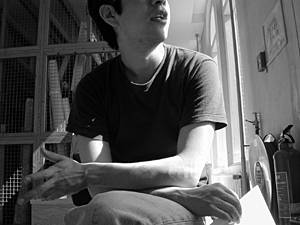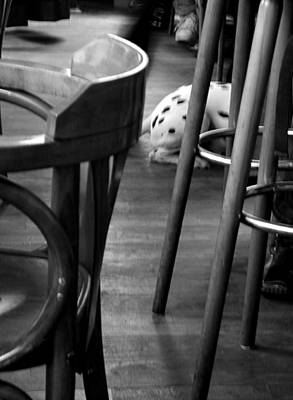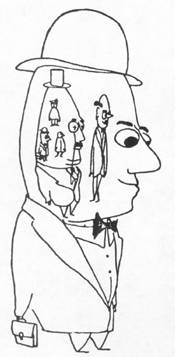|
|

|
|||||||||||
|
|
Present Past Subjects Projects Misc |
APRIL 2002
Sig-of-the-day: Why try to act like a normal human being when we all know that the muppets have so much more fun? The Individuality of a Single Day (Past Fools Day haecceities.)
Salvia Divinorum (Compare these entries from the summer of 2000: Salvia Divinorum Update, Whoops and Wondrous Things. This could be a joke but it's not.) Raimundas writes:
Raimundas's ABC news page quotes the beginning of ethnobotanist Daniel Siebert's article Salvinorin A: Notes of Caution: "Salvinorin A (the major active principal of the plant Salvia divinorum) is an extremely powerful consciousness altering compound," the article begins. "In fact, it is the most potent naturally occurring hallucinogen thus far isolated. But before would-be experimenters get too worked-up about it, it should be made clear that the effects are often extremely unnerving and there is a very real potential for physical danger with its use " But does not link to the article directly or itself qualify the danger. For the record, Siebert's article continues: "When the herb Salvia divinorum is consumed either by smoking the dried leaf or chewing the fresh leaves the effects are usually (but not always) pleasant and interesting, this is because when used this way the amount of salvinorin A absorbed into the blood stream is usually very small and in the case of the chewed leaves it is absorbed into the blood stream very gradually. "The pure compound salvinorin A is active at 200 - 500 mcg when vaporized and inhaled. Since very few people have the costly equipment necessary to accurately weigh anything close to this small an amount, it is inevitable that people will try to visually estimate the dose. Unfortunately there is little room for error before the effects become potentially dangerous. When the dose goes above 500 - 1000 mcg the effects can be very alarming, I have seen several people get up and lunge around the room falling over furniture, babbling incomprehensible nonsense and knocking their heads into walls. Several people have tried to wander out of the house. When the experience is over they have no memory of any of this. In fact they usually remember very different events. To an outside observer people in this condition have a blank look in their eyes as if no one is present (and perhaps no one is). It is also common for people to have a facial expression which is probably best described as being like that of a frightened animal. It appears that at these "larger" doses one completely loses awareness of, and control over, the physical body and for some reason part of the brain causes the body to get up and move about recklessly while the individual has no awareness of where their physical body is or what it is doing. It seems inevitable that one of these days some careless person will do too large a dose without a sitter and will wander out in the street, or hurt themselves in some way. "Because the dose is so small and insignificant looking, there is a tendency for people to think they need more than what they are told is a safe dose. Another problem is that the technique of vaporizing and inhaling the compound can be a bit tricky. Salvinorin A has a relatively high boiling point and people often don't get it hot enough to remain a gas all the way down into the lungs. Another problem is that so little is used that the vapor often disperses before it gets inhaled. Sometimes people just don't hold the vapor in their lungs long enough for thorough absorption. Several people after trying a dose in the recommended safe range and not getting an effect assumed that they needed a larger dose, when in fact the problem was that they did not vaporize the material efficiently the first time. I have already seen more than one intelligent, careful and experienced person accidentally do too large a dose because of this. Fortunately they had sitters and managed to get through the experience safely." (I'm at the Rijksakademie today.) Narratology A: Telling it like it is? B: No. A: Telling it like we want it to be? B: Not exactly. It's more like examing how we tell it. Manfred Jahn's (extremely thorough) Narratology Guide (Uni-Köln). Why pay attention to how we tell stories? Beyond recognising the need to capture our experience (and represent ourselves) in stories (reflecting our need for what? ...closure?, ...sureity?, ...death?) might we not consider the possibility of a choice -- being able to choose from a repertoire of potential procedures and patterns -- such that we can alter our relation (identification/identity) to what we experience? Story hacking -- to operate on the 'how' of our own stories -- might be the best way to play with 'reality' (why try to act like a normal human being when we all know that the muppets have so much more fun?). Jahn quotes Edward Branigan (Narrative Comprehension and Film) in this regard: "I wish to examine how we come to know that something is a narrative and how a narrative is able to make intelligible our experiences and feelings. I will argue that it is more than a way of classifying texts: narrative is a perceptual activity that organizes data into a special pattern which represents and explains experience." A Short List of Films for Barry Nijkeuter
I really enjoyed being at the Rijksakademie yesterday. I'll be visiting more studios there today and tomorrow. May You Never Recover Happy accidents, fuck ups, will and fate. From Blanchot, The Writing of the Disaster:
Cf. Day 21 at DasArts (15.10.01). Creative thinking and rhetoric aside, if -- as Stuart Hall put it -- we can never really think outside of box, ("I think we are all inside ideology. There is no space outside -- totally outside -- of ideology", see an interview with Hall, The Narrative Construction of Reality), yet we acknowledge the existence of disasters which have always-already happened to us, disasters from which we will never recover; this must mean (in certain respects) we have no futurology: IF - THEN-ess... but something else: IF - YET-ness. Charles Krafft's Villa Delerium and Disasterware. Ghost Story The artist makes marks and is somehow encouraged by this. Socrates decrees 'the unexamined life is not worth living'... but what about the unconscious life? To what extent can the artist claim this aspect of 'the living'? If we concede to Deleuze that the can-do-ness of the mind and body surpass our capacity for reflective examination... "What does Spinoza mean when he invites us to take the body as a model? It is a matter of showing that the body surpasses the knowledge we have of it, and that thought likewise surpasses the consciousness we have of it." (Gilles Deleuze, Spinoza: Practical Philosophy) ...we can better concede the impracticality of such attempts at examination and admit the practical route of simply relaxing and moving over and inhabiting the unexaminable without further fuss. But what about the fact that today more and more of life is recordable and thus recoverable later, that is the unexaminable now need not remain unexaminable forever... in other words it is possible to re-enact with increasing sophistication the written, the remembered, the photographed, the videoed, the security-camera'd, the traced, the cookie'd etc.?
Erick Beltran. 3 April 2002.
(Note to myself...) To examine is to pay attention. But is to pay attention simply to be saddled with nothing other than the other's inexistence? Perhaps this is what Marcel Duchamp meant in 1943, when in the invitation to his exhibition at the William Copely Gallery in Los Angeles he wrote, "Be my guest, be my host, be my ghost." Today Stewart, thank you for this. Really, thanks. Yesterday Yesterday was one of those days where everything falls into place around a single appointment, in yesterday's case everything falling into place around a 4 o'clock doctor's appointment. Before the appointment came the phone call, the email, the photograph of the blossoming rosemary bush, the elaborate breakfast, and the quick shopping trip to the Hague.
After the appointment came two more phone calls, the dinner, the finishing of the book and bed. Thresholds. The thresholds of vampires and angels seem to be a lot greater than yours and mine. Note to myself to look up the work of Huang Yong Ping. Death in the Afternoon Via Deleuze's footnote to Spinoza's spider fighting habit (it seems to be true but don't worry... Schopenhauer and Arne Naess, amongst others, have strongly denounced it...) I am reminded of the artist Huang Yong Ping's 'Le Théâtre du Monde' which I saw in Centre Pompidou in Paris in 1995. Or better, sort of saw, as the animal rights activists had shut the work down and removed the spiders, snakes and scorpions by the time I visited the exhibition. All that remained was the cage-sculpture, a coliseum of sorts, where, if I understood the design correctly, the beasts were to be pitted against one another. Following this recollection, another. Once, under the influence (it was in Groningen but god knows what year it was) I watched a wasp strike and kill a fly. The wasp came out of nowhere, suddenly, a surprise. It's body actually made a sound, a noise, as it struck the fly's body, a loud 'thuuuck', amplified by the window glass, the window glass which began to vibrate as an effect of the impact. I was so startled by the suddeness of this, so startled, this impact, this vibration, this moment which must occur countless times in my presence but this time (as I said, under the influence) occupying the absolute center of my attention. To land in the middle of it...
(From behind the glass. We've had about a week of this sky...) Tackling Spinoza I've returned to some surprising familiar places such as Bateson's essay 'The Cybernetics of 'Self': A Theory of Alcoholism' and Arne Naess's essays on Deep Ecology. Also Spinoza seems to synch pretty well with subjects such as memetics and the no-self (anatta) of Buddhist psychology. I can't tell you how much this pleases me. Speeds and Slownesses "Speeds and slownesses, movement and rest, tardiness and rapidity subordinate not only the forms of structure but also the types of development." You know the problem: 'The Black Meat' section of Naked Lunch contains a couple of my all time favorite 'speeds and slownesses' passages:
If you've never read the book I recommend you buy it and read it (and forget, forget, forget you ever saw the movie). Within an hour of my posting of Monday's entry I received the following mail from the mysterious bhikku:
Mark Hansen's Becoming as Creative Involution?
(Post Modern Culture, September 2000)
(This morning...)
(Yesterday morning...) Design Recast Attended the Design Recast conference in Maastricht yesterday and today. It was wonderful to find so many good friends there -- though the program as a whole left me with a sort of image of experience, a 'Raft of Medusa' image: an image of tired, worn out bodies afloat on a horizontal plane, an image where the picture's vertical axis, the raft's mast, has been bent back and replaced by another vertical, the struggle (by those still quick) for surer footing, for moral ground. Why is this? Of course we can easily imagine the crisis: the breakdown of identity, the crumbling of category, but why, under the circumstances, the (deep, hidden) assumption that design must find moral goodness, (or even further, must in-its-very-essence be morally good)?
A discipline, a discourse, a body of knowledge and experience, will eventually shipwreck. It has to. (It is always-already shipwrecked.) The image of collective catastrophe exposes an ocean of possibilities. Why then should experience re-organize around a slender assumption of morality? "Who knows what a body can do?" Untitled
This afternoon (with Ineke). Notice Henceforth we will be no longer accepting email at: Our current address can be found here. Via Borges Studies Online: Marcelo Abadi, Spinoza in Borges' Looking Glass. Labyrinths of Cause and Effect Could it be that Leo Perutz out-Borges's Borges? It was a friend, M. M., who first brought Perutz (1882-1957) to my attention a couple of years ago and enthusiastically lent me the book which I'm currently re-reading, The Marquis of Bolibar (1926). Perutz was a Czech Jew and a world-class mathematician who possessed "a phenomenal knowledge of history and literature, both classic and modern." Perutz's books are fastidiously crafted jewels, labyrinths of both viewpoint and cause and effect. Such convoluted narrative structures interest me a great deal. I only wish I could find more writing like this. A Most Useful Adjective (one for the mission statement...) maieutic, adj. (Of Socratic mode of inquiry) obstetric, serving to bring out a person's latent ideas into clear consciousness. Last weeks lacunae: (1) the calm of Stewart and Caterina's visit, (2) the act of two extra nights sleeping on the couch. What is Man? Met with Andrea and Sander in Groningen. Took snapshots of Immortality Suite (yesterday was the last day of the exhibition). Came home and met with Lily van Ginneken. Not What But Why Rehearsals. Why not think of events as rehearsals?... Where every event in the world is a rehearsal?... Another form of re-enactment (re-pleased, re-embraced, re-loved)... And the stories we tell each other... Why not think of these stories as rehearsals? And the thoughts that we think... "Why are you thinking?"
Piecemeal Paging back and forth in a book. Paging back and forth between books. Fingers holding books open. Books held open on the knee. Reading from the middle of each book outwards. Spinoza's Ethics. Pavic's Dictionary of the Khazars. Cortazar's Hopscotch.
According to this page, only three fictions (as rehearsed) by Borges have found adaptation in feature films, Cammell and Roeg's Performance, Bertolucci's The Spider's Strategem (we watched this at the DasArts International Film Festival and fell asleep!) and Cox's Death and the Compass. Calling All Ontological Vertigo Junkies "Hold on!" Ok... here's a fun thing to do with your time... grab a copy of John Barth's 'Lost in the Funhouse' and read Menelaiad... (you can forget 'The Matrix', forget 'Existenz', this is going to be a much better trip... I guarantee it...) if you are a vertigo junky (or into LISP programming) this (affectively) is as good as it gets... Before you go you're going to need some stuff:
Met with Elly Rijnierse last night. At the library: Photocopied the Blijenbergh - Spinoza correspondence (8 letters, 4 each, mailed from December 1664 to June 1665) Borrowed 'Teach Yourself Instant Spanish' Sadly (desgraciadamente) I've never been able to roll an 'r'. Perhaps I can learn to do that now. It is very misty this morning. Drinking coffee and listening to the soundtrack of Peter Brook's Mahabharata, I look out the window and marvel at how a few hours sleep can again reset the body's calm, how the weather can mirror one's mood, how convoluted and labyrinthine experience can be. Rogerio tells me (over the phone) about a rich friend in Brazil who sometimes slept in her garage. Raimundas sends me this:
(Lunch spot in Gent) "This is why all those who dream without mourning their dreams... are pigs." Hans Bryssinck sends me this passage by Artaud:
(21:00 hrs.) Two white plastic food boxes are procured and filled: a diagonally sliced cucumber goes into one white box and roasted cashew nuts into the other. The lids snapped shut, the boxes are placed in the bottom of the day pack. The pack is closed and hoisted onto either one of our backs. We leave and lock the door. We walk away in a rush, quick-step, the motion causing the contents of the boxes to bounce and rattle rhythmically. "Indeed, Kamar al-Akmar and his wife, Shams al-Nahar led a life of joy and solace until they were finally visited by the Destroyer of delights and the Sunderer of societies." (The Ebony Horse, A Thousand and One Nights) I wonder, has anyone read The Architect of Ruins (Ruinenbaumeister) by Herbert Rosendorfer? By the sound of it -- and it sounds very good -- this book deserves to be added to my Arabian Nights/ Embedded Narrative pile.
ALAMUT.COM is artist owned and operated.
|
|
|||||||||







